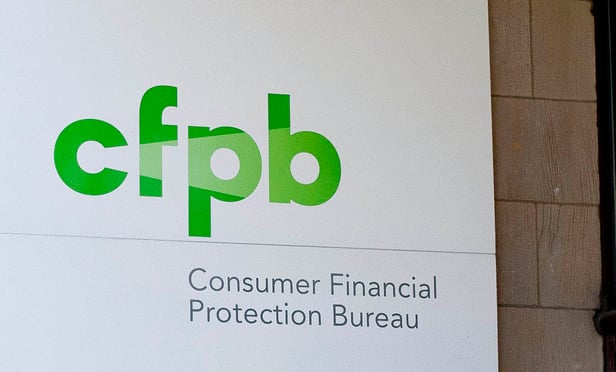
House Democrats Wednesday accused CFPB Acting Director Mick Mulvaney of abandoning the enforcement role of his agency—a claim that Mulvaney vehemently denied.
“There's no evidence that you're enforcing any of the laws,” Rep. Carolyn Maloney (D-N.Y.) told Mulvaney during a House Financial Services Committee.
Mulvaney said that while he has not started any enforcement actions since assuming the position last year, the agency continues enforcement actions he inherited from previous Director Richard Cordray.
“I have not burned the place down,” Mulvaney said, adding, “We are still going after the bad actors.”
Rep. Stephen Lynch (D-Mass.) pointed out, however, that under Cordray's leadership, the agency on average initiated one enforcement action a week.
“The need for enforcement has not gone away,” Lynch said.
Mulvaney also waded into the thorny negotiations between the House and Senate over financial regulatory changes. Financial trade groups have urged the House to simply pass the Senate version of the bill since many House-passed provisions likely would not pass the Senate.
“I happen to like just about everything in the Senate bill,” he said. However, he added that there are House-passed provisions that could be added to the measure.
Mulvaney's appearance before the committee is the first time he has testified in his role as CFPB director; he will testify at a Senate Banking Committee hearing Thursday.
House Democrats disputed whether Mulvaney actually is the acting director of the agency. That battle is being fought in federal court, where Deputy Director Leandra English contends that under Dodd-Frank, she is the proper director of the agency.
Ranking committee Democrat Maxine Waters of California and other Democrats preceded their questioning with the statement that their participation in the hearing was not a concession that he is the proper director.
President Trump appointed Mulvaney, who also is director of the Office of Management and Budget as acting agency director following Cordray's departure.
He told the committee that if Trump does not nominate a permanent director by June 22, he must leave office. If Trump nominates someone, Mulvaney said he can continue to serve during the confirmation process.
Mulvaney said that based on how long the Senate takes to confirm nominees, he expects to serve as acting director until late fall 2018 or even until the end of the year.
During the hearing, Mulvaney, who as a House Republican member from South Carolina, wanted the CFPB dismantled, lamented the fact that he has so much power in his role.
He again appealed to members to bring his office under the appropriations process and to better define his powers. For instance, he said that Dodd-Frank does not define the word “abusive” in his responsibility to take actions in cases of “unfair, deceptive or abusive acts or practices.”
He said since there is no definition of the term, the law gives him tremendous discretion in pursuing financial institutions.
Mulvaney also said that his bureau has a team of economists that can spend up to half of their time conducting studies, regardless of whether it pertains to agency business.
For instance, he said, agency economists have conducted a study on the role that hub airports have on urban growth.
During the hearing, Rep. Ann Wagner (R-Mo.) questioned the decision to spend more than $240 million on renovation of the commission's office. Wagner said that former Director Richard Cordray said he didn't not know who approved the renovation.
Mulvaney said the renovation records, which was readily available in Cordray's own files, show that the work was approved by now Sen. Elizabeth Warren (D-Mass.), who was then serving as a special assistant to President Obama on the establishment of the CFPB.
Members of the committee continued to clash over the agency's role.
“Director Cordray often acted unlawfully,” committee Chairman Jeb Hensarling (R-Texas) said. “Acting Director Mulvaney is acting lawfully.”
However, Rep. David Scott (D-Ga.) questioned Mulvaney's work.
“You clearly are out to destroy the CFPB,” he said.
© 2025 ALM Global, LLC, All Rights Reserved. Request academic re-use from www.copyright.com. All other uses, submit a request to [email protected]. For more information visit Asset & Logo Licensing.







